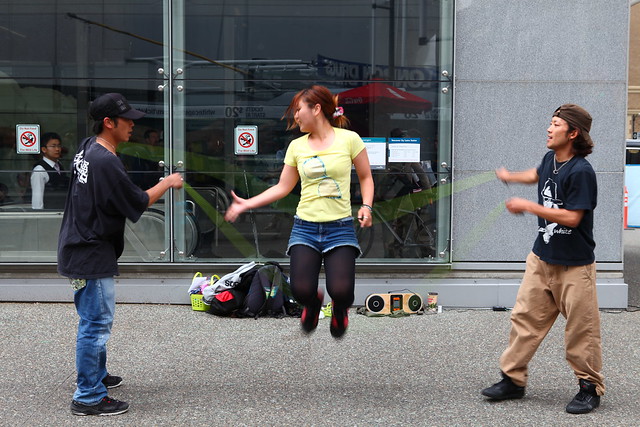Welcome to Word Buzz Wednesday, your go-to place for the most interesting words of the week. The latest: YOLO, solo style; you’re just hearing things; a non-bot.
honjok
“Now, many businesses advertise themselves as friendly to the number of people who self-identify as honjok, or loners.”
Isabella Steger, Soo Kyung Jung, “Exhausted by the herd, single South Koreans are gingerly embracing the ‘YOLO’ lifestyle,” Quartz, August 2, 2017
While honjok means loner, says Quartz, honsul means drinking alone and honbap means “eating alone,” as opposed to hamkkebap, or “eating together.” Some bars in Korea are catering to such a preference with signs proclaiming, “Drinking alone is welcome here,” while a barbecue restaurant in Seoul embraces honbap by showing the various levels of solo dining mastery, from easiest (“eating ramen at a convenience store”) to the most difficult (“Korean barbecue, the ultimate group meal”).
fisk
“The clip featured somewhat rightist personality Dana Loesch promising, among other things, that she and the NRA would fisk The New York Times.”
Chris Matyszczyk, “Fisk: The word that’s all the rage at Dictionary.com,” CNET, August 6, 2017
Fisk apparently means to “rebut an argument line by line, especially on the Internet,” and seems to come from Robert Fisk, an English writer and journalist.
broflake
“In American political internet discourse, you’re either a snowflake or a broflake. Or you’re a smart person who’s deleted their Twitter account.”
Heather Dockray, “There’s a new kind of bro in town. We call him the ‘Broflake,’” Mashable, August 7, 2017
Broflake is a play on snowflake, “a derogatory term used against progressives deemed to be too soft on issues of national importance.” Like snowflakes, broflakes “are especially sensitive to issues of race, class and gender,” but are “the inverse of the snowflake community demographically and are disproportionately likely to be white, male, and making prank videos on YouTube.”
Broflakes defend traditional power hierarchies instead of challenging them, and are “more narcissistic than the typical bro and more sensitive to slights.” They also don’t mind letting everyone they’re “smarter than the average bro” by “tweeting approximately 12 times a minute.”
Shepard tone
“If you’ve never heard of a Shepard Tone, buckle in for some super interesting music knowledge.”
“The Fascinating Sonic Illusion That Makes Christopher Nolan’s Movies So Tense,” Digg, July 2017
According to this video from Vox, the Shepard tone is designed to cause an auditory illusion. It “consists of several tones separated by an octave, layered on top of each other,” and “as the tones move up the scale, the highest pitched tone gets quieter, the middle pitch remains loud, and the lowest bass pitch starts to become audible.” As a result, “your brain is tricked into perceiving a constant ascending tone.”
The Shepard-Risset glissando occurs when the tones are looped together, sounding like “an ascending piano scale going on for infinity,” which “can sound really spooky” and be used to create “the sound of rising tension” in a movie.
The Shepard tone is named for Roger Shepard, a cognitive scientist, while the Risset of the Shepard-Risset glissando comes from Jean-Claude Risset, a French composer.
Wizard of Oz experiment
“The fake driverless car experiment is a version of what’s known as a Wizard of Oz experiment—where subjects interact with a computer system they believe to be autonomous but that is actually operated by an unseen human being (at least partially).”
Andrew Small, “Here’s the Real Science Behind That Fake Driverless Car,” CityLab, August 6, 2017
Pay no attention to that man behind the curtain! The term Wizard of Oz, or WOz, technique is credited to John F. Kelly, whose “original work introduced human intervention in the work flow of a natural language processing application.”






